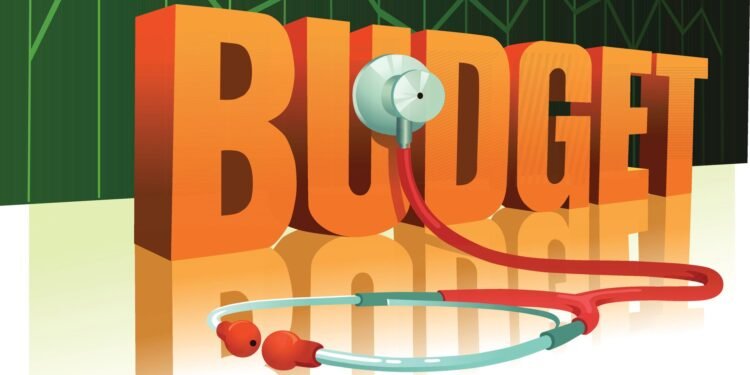IMANI Centre for Policy and Education in its latest Fiscal Recklessness Index ranked the Ministry of Finance as the most fiscally reckless Ministry for the third consecutive time.
The findings of this index, which reflect serious governance and management lapses, highlight critical insights into fiscal discipline—or the lack thereof—within some of Ghana’s most important ministries, departments and agencies.
At the heart of IMANI’s assessment is the Ministry of Finance, which has consistently ranked as the most fiscally reckless institution over the three periods of the report.
“In 2021, 95% of the financial irregularities could be traced to the ministry of finance. In 2022, almost 89 per cent could be traced to the Ministry of Finance. In 2023, almost 90% of the financial irregularities could be traced to the Ministry of Finance. And the reason is that the Ministry of Finance has an oversight function over the Ghana Revenue Authority.
“And so all tax irregularities will be traced to the Ministry of Finance. And so the Ministry of Finance is the most fiscally reckless MDA in Ghana based on our assessment and that is because the tax irregularities represent about 90% of the total financial irregularities and because they have oversight over that aspect of our MDAs, that is why they come on top as the most fiscally reckless institution”.
IMANI’s Fiscal Recklessness Index Report, 2024
Dennis Asare, Senior Research Associate at the IMANI Center for Policy and Education explained that the Ministry’s oversight functions are critical in managing tax revenue and preventing fiscal leakages.
However, weak compliance enforcement and negligent actions—such as failing to collect taxes and manage revenue arrears—are driving the Ministry’s fiscal irresponsibility.
Widening Irregularities in Other Key Ministries
Besides the Ministry of Finance, other critical ministries were being identified as increasingly fiscally reckless, indicating broader systemic governance failures.
The Ministry of Food and Agriculture, for example, made a shocking leap from being the 12th most fiscally reckless institution between 2015 and 2020 to the 2nd most fiscally reckless from 2021 to 2023.
This decline raises serious concerns about the Ministry’s commitment to fiscal discipline, particularly in a sector as vital as agriculture, which directly impacts food security and rural development.
Again, the Ministry of Communications according to the report has also exhibited a steep decline, moving from 14th place in the previous recklessness index to 3rd in the most recent rankings.
Similarly, the Ministry of Roads and Highways and the Ministry of Health both remain in the top five fiscally reckless MDAs.
Although the Ministry of Health showed a slight improvement, the report noted that it is still embroiled in significant financial irregularities that continue to impede its ability to provide essential services.
These ministries, responsible for the country’s infrastructure, agriculture, communications, and public health, are instrumental in achieving sustainable development goals (SDGs).
Their high levels of fiscal recklessness, according to IMANI, could have severe consequences on service delivery, as millions of dollars that could have been used to improve community services have been lost to mismanagement and weak oversight.

Institutional Weaknesses Driving Fiscal Recklessness
IMANI’s Fiscal Recklessness Index further threw light on the structural and institutional weaknesses that enable financial irregularities to persist within these ministries.
The think tank’s report identified weak compliance enforcement and negligence by public officials as the primary drivers of fiscal recklessness.
“For example, not collecting revenues is sheer negligence. Also, the fact that we’ve implemented a lot more IT solutions in our system and we should see much more returns and it’s not showing, that tells us that there are weaknesses in the effectiveness of the way these institutions do their work and so the fiscal recklessness is a reflection of the institutional weaknesses or institutional ineffectiveness”.
IMANI’s Fiscal Recklessness Index Report, 2024
The think tank also pointed out that fiscal recklessness is compounded by weak internal audit systems and the ineffectiveness of Audit Review Committees.
Internal audits are supposed to ensure adherence to Public Financial Management (PFM) regulations, but IMANI’s report highlighted a lack of proper monitoring, as many of these audit committees are not functioning as they should.
“You see a very weak enforcement of sanctions in our procurement system. That was also because the audit review committees at the institutional level, if you look at their composition, it’s like asking, people to watch over themselves.
“If they can watch over themselves, then all of those irregularities you identify wouldn’t have occurred. So the composition of the audit review committees don’t allow them to be effective”.
IMANI’s Fiscal Recklessness Index Report, 2024
Lack of Sanctions: A Recipe for Abuse
Additionally, IMANI’s assessment pointed to another glaring issue: the lack of sanctions for blatant violations of procurement and financial management rules.
The report noted that even when financial irregularities are identified, officials often face no penalties, allowing misconduct to go unchecked.
The absence of punitive actions according to IMANI not only undermines fiscal discipline but also emboldens public officials to continue reckless practices, knowing there will be no repercussions.
“There’s no sanction applied to most of these businesses, who actually owe the government for example, some of the OMCs, their debts are rescheduled and after it is rescheduled, the GRA is supposed to apply sanctions, but the auditor general identified instances where sanctions are not applied and we really want to understand why these sanctions are not applied.
“For example, in cash management, when people fraudulently withdraw money from government coffers, there should be sanctions, but we don’t see those sanctions being applied”.
IMANI’s Fiscal Recklessness Index Report, 2024
A Call for Reform
In conclusion, while the top five MDAs continue to dominate the recklessness index, IMANI’s report also noted a few MDAs that have made progress.
The Ministry of Chieftaincy, for example, consistently ranked among the least fiscally reckless institutions, showing that improvement is possible when the right systems are put in place.
Nevertheless, the findings make it clear that without stronger oversight, enforcement, and sanctions, fiscal recklessness will continue to undermine Ghana’s development efforts.
IMANI thus called for a comprehensive overhaul of the internal audit systems within these ministries, along with stricter enforcement of penalties for those found guilty of financial mismanagement.
The think tank also emphasized the need for capacity building in tax compliance and monitoring mechanisms within key MDAs to ensure that fiscal discipline becomes a priority across the board.
IMANI’s Fiscal Recklessness Index paints a troubling picture of Ghana’s financial management across several of its most important ministries.
The Ministry of Finance, responsible for the nation’s financial health, continues to top the list of offenders, followed closely by other key ministries that directly affect public services.
The persistent negligence, weak oversight, and failure to enforce sanctions not only reflect a breakdown in governance but also present a real threat to Ghana’s development goals.
READ ALSO: Stonebwoy Set To Release ‘Memories’ Visual With Ir Sais






















